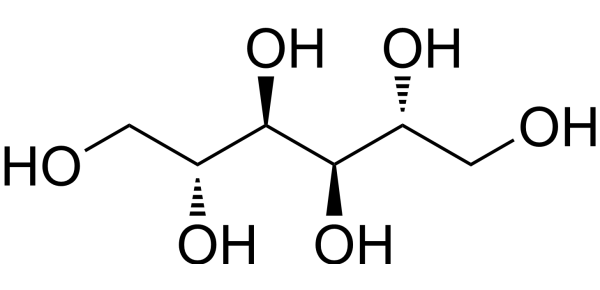Parkinson’s Disease (PD) is typically understood through the lens of dopamine depletion and neurodegeneration. Emerging evidence points to a much earlier origin in the gut driven by microbial dysfunction, as described by Braak’s gut-first hypothesis and recent studies showing microbiome alterations in Parkinson’s patients, disrupted carbohydrate metabolism, and failing protective biochemical networks. At The BioCollective, we believe addressing metabolic balance at the microbial level is key. Our recent research introduces a practical systems-based approach, employing functional, guild-based probiotics to boost the body's natural production of protective molecules like mannitol and butyrate. These molecules play a crucial role in preventing protein misfolding, reducing oxidative stress, and balancing immune responses.
The Mannitol Breakthrough
When my husband John was diagnosed with Parkinson’s at 44, I was determined to find new solutions beyond conventional medicine. At a Parkinson’s conference, I heard researchers present animal data showing that mannitol could stop harmful proteins from clumping in the brain, which is a major problem in Parkinson’s.
Mannitol is a common sugar alcohol abundant in nature. It isn't absorbed by humans but is vital for microbial, plant, and mitochondrial health. It helps maintain osmotic balance, neutralizes harmful reactive oxygen species (ROS), and supports cellular reducing power. Animal studies have demonstrated that mannitol can help prevent and even remove harmful protein aggregates, notably α-synuclein, which is directly linked to Parkinson’s pathology from the brain.
As I dug deeper, I discovered only a handful of probiotic bacteria can make mannitol by converting glucose and fructose in the gut. And then the idea clicked. What if I could reintroduce these microbes, so the gut acts like a little metabolic “factory” that helps detox and reduce sugar’s harmful impacts, right inside the body?
Sugar Shift® was born. A probiotic blend designed to help convert excess sugar into mannitol and butyrate, both helpful substances.
From Individual Strains to Cooperative Communities
Using the BioFlux™ model, we selected and combined specific bacterial strains with complementary functions:
Conversion of glucose into mannitol, as demonstrated by research on the metabolic capabilities of probiotics such as Leuconostoc mesenteroides, reduced glutathione, and butyrate
Consumption of acetaldehyde (a neurotoxic fermentation byproduct)
Support for detoxification, healthy copper metabolism and melatonin production
Enhancement of glycan metabolism, nourishing the gut lining and reducing inflammation
When working together, these strains achieve a synergy greater than their individual capabilities. Laboratory tests demonstrated higher mannitol production when strains operated as a consortium.
Parkinson’s Case Study: Real-World Microbial and Metabolic Improvements
In a practical case our study of John’s microbiome, we observed significant improvements after 120 days on Sugar Shift®:
Reduction in harmful, inflammatory species like Streptococcus anginosus and Porphyromonas bennonis
Increased beneficial microbes such as Leuconostoc mesenteroides, Pediococcus acidilactici, and Lactobacillus reuteri
Improved enzyme activity related to glycan metabolism and butyrate production
It shifted his microbiome toward what’s recognized as a “healthier” profile by the Human Microbiome Project.
In addition, shotgun metagenomic sequencing from a small six-person study (three individuals with IBS and three healthy controls) showed that after just 30 days on Sugar Shift®, there was a 32.1% increase in genes related to mannitol production, a 27.3% boost in butyrate-producing genes, and a 59.3% decrease in antibiotic resistance genes.
Clinical Trial Results: Demonstrable Metabolic Improvements
We conducted a clinical trial focused specifically on diabetes because it provides reliable clinical endpoint measurements, unlike Parkinson’s, where current measures like UPDRS are subjective and no standard microbiome markers exist. Both diseases share underlying mechanisms, including insulin insensitivity and endotoxin-driven models, making diabetes a relevant proxy for studying Sugar Shift’s effects. In this trial, we measured key metabolic markers: fasting blood glucose, postprandial glucose, insulin, HOMA-IR, HbA1c, and serum endotoxin (LPS). Participants took Sugar Shift daily, with data collected at baseline, 90 days, and 180 days.
Key findings:
Fasting blood glucose, postprandial glucose, insulin, and HbA1c all improved over time in the Sugar Shift group versus control. This is notable given that impaired glucose tolerance occurs in over 50% of people with Parkinson’s.
Serum endotoxin (LPS) dropped dramatically; “100% of the people who took the product actually had lower serum endotoxin in the trial.” At 180 days, LPS levels were almost non-existent. While this was a diabetes trial, endotoxins are also implicated in Parkinson’s.
Improved Gut Motility and Comfort
We've received numerous anecdotal reports highlighting the positive effects of Sugar Shift® on gut motility, particularly among individuals with Parkinson’s or chronic constipation. Users frequently express that it significantly improved their bowel regularity and reduced gastrointestinal discomfort. Some customers have even incorporated Sugar Shift® capsules into homemade yogurt to boost probiotic potency, with one user notably reporting the complete reversal of severe constipation in a neighbor who consumed it daily.
Another Probiotic Solution
Another promising probiotic approach is Neurali, developed by Bened Life. Their product contains a single bacterial strain, Lactiplantibacillus plantarum, and they've conducted multiple clinical studies showing notable improvements in Parkinson’s patients. We isolated and sequenced their strain for comparison. While Sugar Shift has additional capabilities, the clinical improvements demonstrated by Neurali further validate the therapeutic potential of targeted probiotics in Parkinson’s management.
That said, it's important to exercise caution with certain probiotics. For example, Akkermansia muciniphila has gained popularity, but research shows it is already elevated in many people with Parkinson’s. While it may offer benefits in some metabolic conditions, its role in neurodegenerative disease appears to be a double-edged sword, and supplementation could worsen an already imbalanced microbial environment in PD patients.
Naturally Restoring Biological Intelligence
This approach supports and enhances the inherent biological intelligence we already possess. The gut microbiome naturally influences metabolism, as supported by extensive reviews on the role of gut bacteria in metabolic processes and neurological health, immune responses, and neurological health when properly supported.
Sugar Shift exemplifies a novel approach to health through ecological restoration. It is a living formulation that works with the body’s natural processes, promoting resilience, balance, and overall well-being from within.
With gratitude,
Martha
Resources
Klingelhoefer, L., & Reichmann, H. (2015). Pathogenesis of Parkinson disease—the gut–brain axis and environmental factors. Nature Reviews Neurology, 11(11), 625–636. https://www.nature.com/articles/nrneurol.2015.197
Sampson, T. R., et al. (2016). Gut Microbiota Regulate Motor Deficits and Neuroinflammation in a Model of Parkinson’s Disease. Cell, 167(6), 1469–1480. https://www.cell.com/cell/fulltext/S0092-8674(16)31590-2
Shaltiel-Karyo R, Frenkel-Pinter M, Rockenstein E, Patrick C, Levy-Sakin M, Schiller A, Egoz-Matia N, Masliah E, Segal D, Gazit E. A blood-brain barrier (BBB) disrupter is also a potent α-synuclein (α-syn) aggregation inhibitor: a novel dual mechanism of mannitol for the treatment of Parkinson disease (PD). J Biol Chem. 2013 Jun 14;288(24):17579-88. doi: 10.1074/jbc.M112.434787. Epub 2013 May 1. PMID: 23637226; PMCID: PMC3682557. https://pubmed.ncbi.nlm.nih.gov/23637226/
Kim, C. Y., Lee, J. H., Kim, B. H., et al. (2002). Production of mannitol using Leuconostoc mesenteroides NRRL B-1149. Biotechnology and Bioprocess Engineering, 7(4), 234–236. https://www.researchgate.net/publication/226320415_Production_of_mannitol_usingLeuconostoc_mesenteroidesNRRL_B-1149
Divyashri, G., Krishna, G., Muralidhara, & Prapulla, S. G. (2015). Probiotic attributes, antioxidant, anti-inflammatory and neuromodulatory effects of Enterococcus faecium CFR 3003: in vitro and in vivo evidence. Journal of Medical Microbiology, 64(12), 1527–1540. https://www.researchgate.net/publication/282566655_Probiotic_attributes_antioxidant_anti-inflammatory_and_neuromodulatory_effects_of_probiotic_Enterococcus_faecium_CFR_3003_In_vitro_and_in_vivo_evidences
Buffington, S. A., et al. (2016). Microbial Reconstitution Reverses Maternal Diet-Induced Social and Synaptic Deficits in Offspring. Cell, 165(7), 1762–1775. https://pmc.ncbi.nlm.nih.gov/articles/PMC5102250/
Santiago, J. A., & Potashkin, J. A. (2013). Integrative network analysis unveils convergent molecular pathways in Parkinson's disease and diabetes. PLOS ONE, 8(12), e83940. https://journals.plos.org/plosone/article?id=10.1371/journal.pone.0083940
Bosco, Domenico & Plastino, Massimiliano & Cristiano, Dario & Colica, Carmela & Ermio, Caterina & Bartolo, Matteo & Mungari, Pasquale & Fonte, Giulia & Consoli, Domenico & Consoli, Arturo & Fava, Antonietta. (2012). Dementia is associated with Insulin Resistance in patients with Parkinson's Disease. Journal of the Neurological Sciences. 315. 39-43. https://www.researchgate.net/publication/221767246_Dementia_is_associated_with_Insulin_Resistance_in_patients_with_Parkinson's_Disease
Thank you for reading! Let’s keep the conversation going.
Here is all of my published work, prior to joining Substack.
My Companies:
At BiotiQuest, we take these discoveries and turn them into action with science-based, targeted probiotics designed to support gut balance, metabolism, and overall wellness: Click here to learn more.
With a mission to uncover the role of gut health in systemic conditions like Parkinson’s, The BioCollective bridges the gap between research and solutions that empower better health for all. Click here to learn more.





